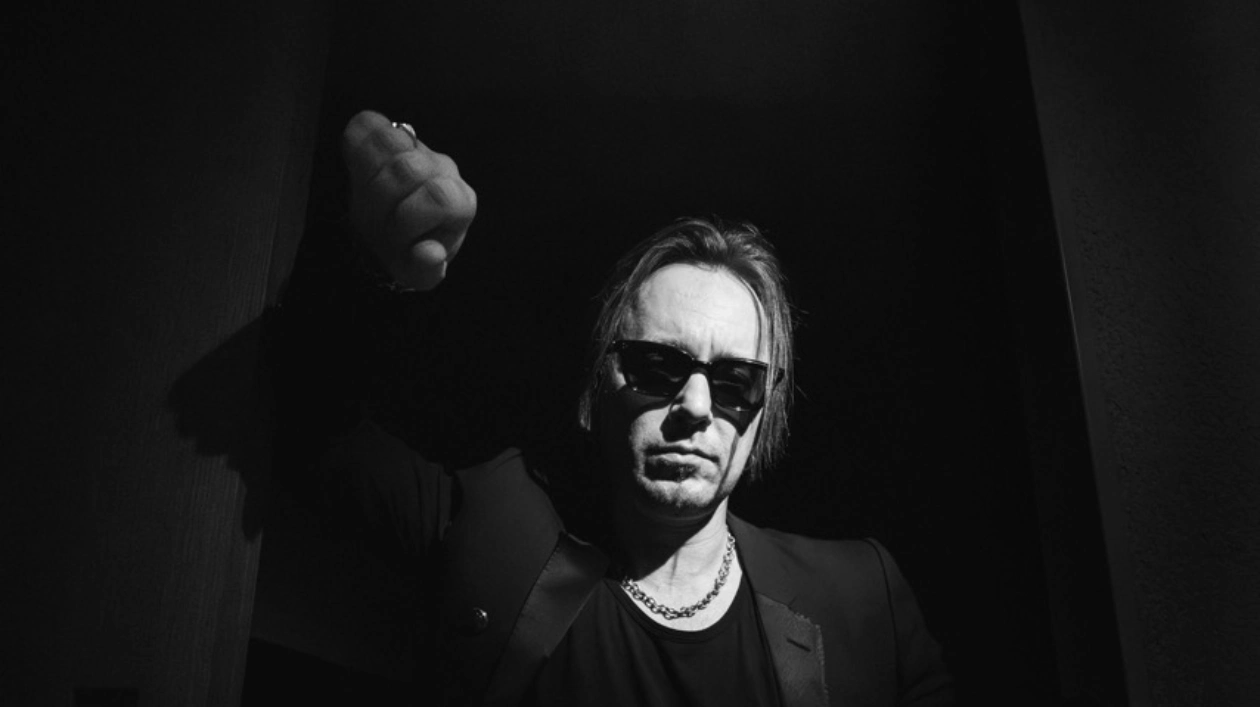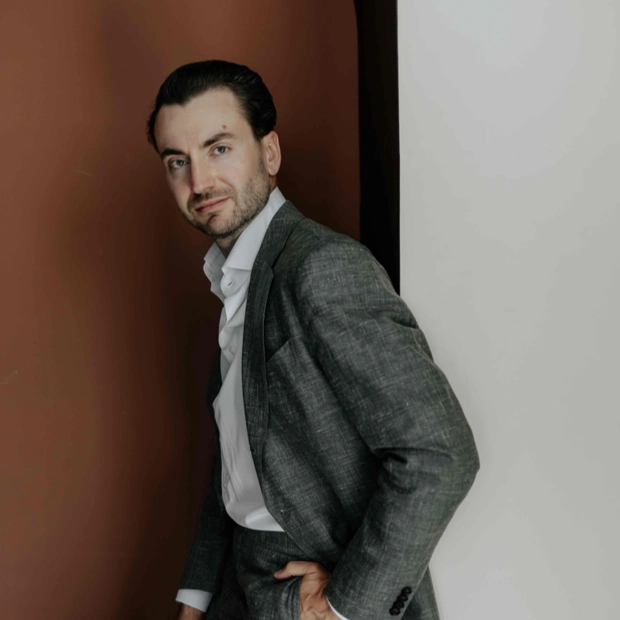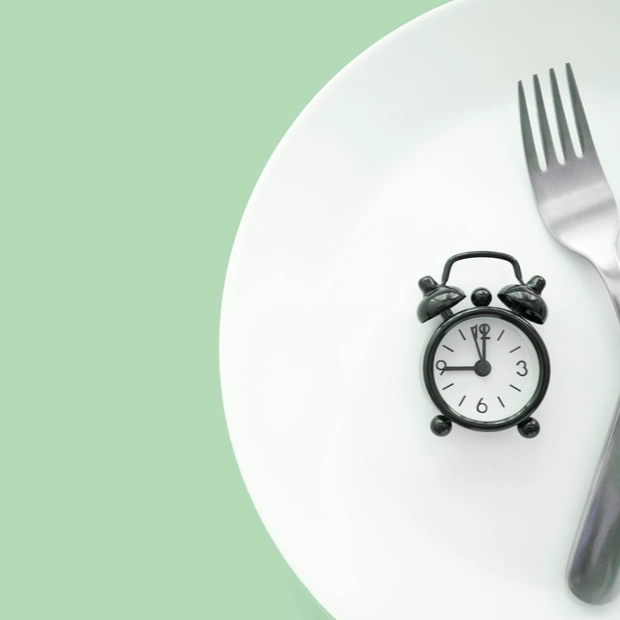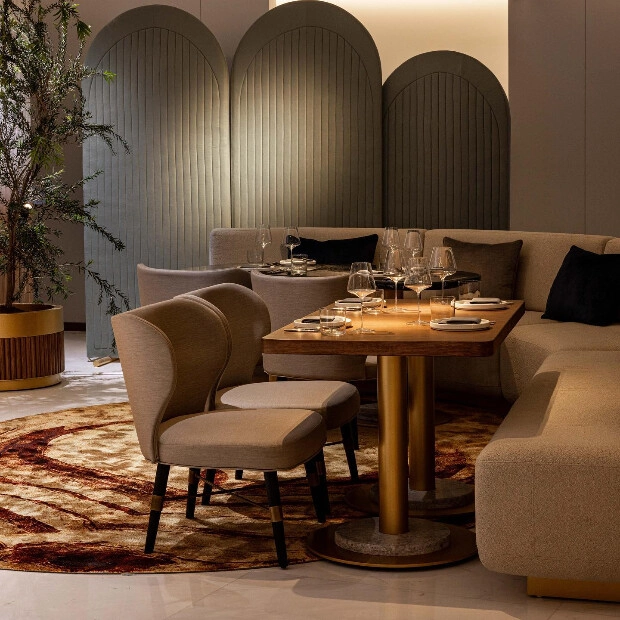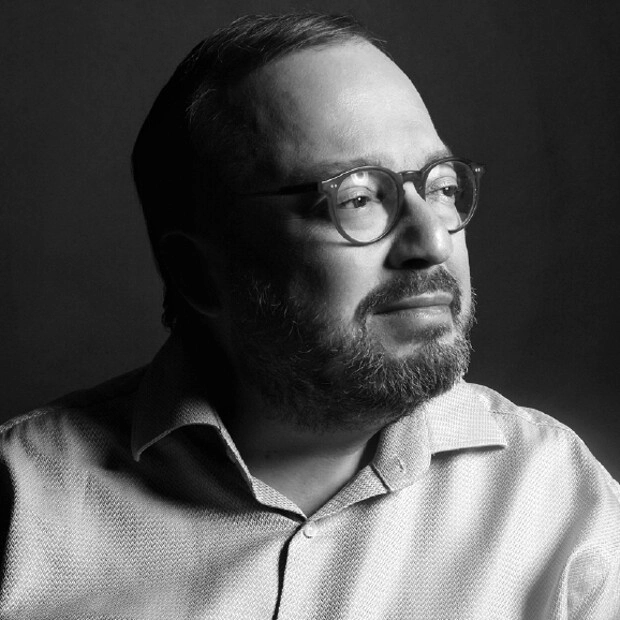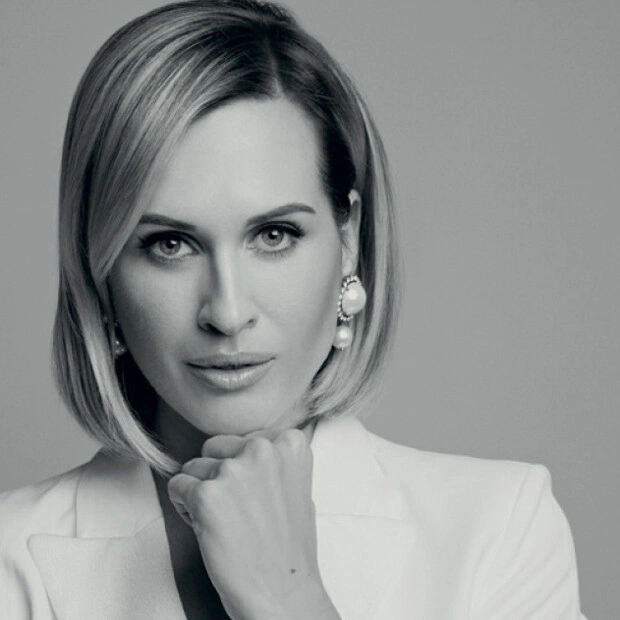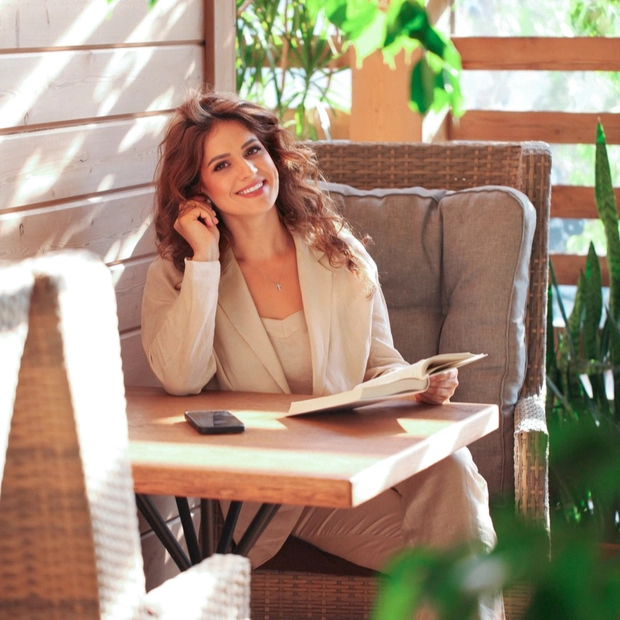“For if I don't burn…”
The story of human life is the story of fire. We begin our journey as tiny candles, barely illuminating the space around us. But as the years pass, we learn to kindle the flame within, fuelling it with experience, knowledge, and passion. Our life is the art of keeping this fire burning, never allowing it to be extinguished by the onslaught of doubt. In this quest for light and warmth, we create places where the flame can burn brighter — like the Hookahplace chain of hookah lounges stretching from Moscow to Dubai. Here, everyone can find their own warmth and share it with others, for this is where the true magic of fire lies. The creator of the chain, Antony Crow, reveals how he managed to build a network of hookah lounges with a shared philosophy but distinct styles.
This childhood memory of mine may not be the most beautiful, but it stands out as a vivid episode. I was eight years old, living in the south in a village with my grandmother while my parents were in Moscow. One day, I accidentally inhaled a needle. A tiny thing, it had been lying on the table as I played with it like a toothpick. And then it got stuck in my throat. For a few seconds, I couldn't breathe. I thought I was suffocating. Then the needle slipped into my trachea, I was taken to hospital, and it was removed. But it's not about the needle itself; it's about those five to seven seconds when my breath stopped, and time seemed to freeze. In those moments, I thought about everything. About how little I had lived, how sad my mother in Moscow would be when Grandma told her. I imagined life without me. It was an almost spiritual experience. Perhaps that was when the desire to experience as much as possible was born. The feeling of life's inevitable end became especially acute. We don't know how much time we're allotted, but it always seems insufficient. We don't have time to do everything we planned, not even to fully understand ourselves. So, the drive to see and achieve more became my motivating force.
After that experience, I began to see the world differently. Some people find it hard to find motivation in life. Perhaps they're going through tough times or facing inner conflicts. But I have always found inspiration in life itself. I don't need extra incentives to move forward. Life itself is an amazing adventure, and I have always sought to explore its new horizons. I'm happy that I can combine the personal and the professional, finding a balance between business and family. This allows me not only to develop myself, but also to inspire my children to new achievements. After all, they ultimately become the most important reflection of all my efforts and aspirations.
My career path has been rather unconventional. It all started when I first visited the Emirates after finishing university. I was struck by the local hookah industry, where establishments offered exclusively hookahs. At that time in Moscow and Russia as a whole, the "all-in-one" concept prevailed: pizza, sushi, and hookah under one roof. But in Dubai, I saw that there were dedicated places where people came solely for hookah, tea, and coffee. This seemed like the right approach to me: a single product focused on one pleasure. After all, smoking hookah in restaurants where families come with children looks strange and out of place. This observation became the starting point for my business.
13 years ago, I was involved in the sales and distribution of various brands. It was a time when the market and industry looked completely different. During that period, I decided to take a new direction and started a Russian-language blog on YouTube. At that point, there were practically no blogs about the hookah industry in the world, and this became my starting point. Within just six months, I got to know the key players not only in Russia, but also abroad. My hookah content attracted attention thanks to high-quality filming and good sound — a rarity in those days. The industry was still small, which allowed me to quickly establish contacts and partnerships.
A year after starting the blog, I gained partners and investments, which opened up new opportunities. I began distributing, importing products to Russia, and opening stores. However, the real breakthrough came about a year and a half later with the opening of the first small hookah lounge. This establishment laid the foundation for a chain that today numbers around 270 locations in 15 countries. Over 11 years, our brand has become the most famous in the world among hookah establishments.
And the project started with the idea of creating a space where people from different social strata could come together around hookah. This place was originally conceived as a kind of club where news, cryptocurrencies, cars — everything that might interest a modern person — were discussed. The first establishment opened in the centre of Moscow, surrounded by prestigious universities. The setting was simple: a few tables placed close together created an atmosphere where everyone could hear their neighbours' conversations. Within a month, the establishment acquired its unique atmosphere — a club uniting people of different statuses. Hookah became the unifying link. Students would come to us after lectures, and sometimes serious businessmen who learned about us through word of mouth. As a result, both could find themselves at the same table.
Today, we continue to develop this concept. We've added an excellent bar and exquisite cuisine — we even worked with a Michelin-starred chef from Dubai. However, all this remains secondary. What's important is that originally there was a simple idea — to create a place where people could gather, socialise, and enjoy a good hookah. It wasn't meant to be just a restaurant or lounge, but rather an informal club where everyone would feel part of a community. We strived to be honest with our guests and offer only those products that we genuinely liked ourselves. If a tobacco or ingredient didn't meet our standards, we simply didn't include it on the menu.
There were many competitors in Russia. Maybe someone was earning more than us at a specific moment. But we were always playing the long game, and this approach ultimately proved itself. We knew how to squeeze the most out of a current project, make it more profitable here and now. But we were never interested in squeezing everything to the last drop — neither from the establishment nor from the guests. After all, it's clear that most people will opt for something simple and understandable rather than a conceptual project. But for us, it's important to live life enjoying what we do. HookahPlace became the embodiment of this philosophy. My team and I are incredibly lucky — we have the opportunity to make money doing what we genuinely love. Many people set earnings as their sole goal, and that also has a right to exist. For some, success is measured in financial indicators, and that's quite understandable. Everyone has their own goals: some are content with ten thousand dollars, others need a hundred, and some strive for a million. But what's really important is the feeling of happiness from what you do. That's perhaps the main criterion. In our company, we've always adhered to this approach. It's important to enjoy the process. This is rare in life, and that's what makes us and our guests happy.
The main thing that makes people happy, and what our business is based on, is quality hookah, which is why our establishments attract people with good taste. Interestingly, hookah culture originally emerged in Arab countries. We saw it, reinterpreted it, and are now returning it to its historical homeland. By opening lounges in places where hookah existed long before us, we're offering a new perspective — European, Moscow, Russian. And this arouses interest and approval among the locals. Returning to the roots with a new vision is an amazing experience that allows us to build cultural bridges and enrich each other's experiences.
When we first started working in Dubai, we were surprised by how accustomed the locals were to monotony. Their experience of interacting with hookah was limited to standard flavours and minimal interaction with the staff. We offered them something different — openness and dialogue. In our establishments, each guest becomes part of a community where individuality and attention to detail are valued. It's especially nice to see how young people, passionate about sneakerhead culture for example — buying and wearing trainers, especially rare and limited-edition models — find support and interest with us. When they come in their sneakers, we always find a way to acknowledge their style. This creates a special atmosphere of trust and understanding that is hard to find elsewhere.
In Russia, after more than a decade, our establishments have acquired a special ambiance. It's more than just a place to relax — there's a spirit of freedom and slight rebellion that has always been close to HookahPlace. We strive to create a space where everyone feels free and loved. It's a place for those who appreciate hedonism and know how to enjoy life. In Dubai, we try to maintain this atmosphere but taking into account local traditions and cultural peculiarities. After all, this is a Muslim country where relationships with alcohol require a delicate approach. We adapt our style to fit local realities while remaining true to ourselves.
Local culture has its peculiarities that need to be known. Our project, which we launched together with Andrey Bolshakov, a renowned bartender, and Ekaterina Alekhina, a Michelin-experienced chef, offered guests not only exquisite dishes and drinks, but also an atmosphere of cosiness and intimacy. However, it soon became clear that some aspects of our approach needed adapting to local traditions. In one of our establishments, where a semi-darkness reigns and alcohol is offered, we encountered cultural nuances with Arab guests. For many women from the local population, the presence of open alcohol and foreign men created discomfort. Despite our hookah being highly appreciated, these factors prevented them from enjoying the establishment's atmosphere. We realised that we needed to create alternative conditions — for example, placing tables on an open veranda where such inconveniences could be avoided.
Alcohol in our establishments is not just a menu item, but part of an international brand that attracts guests from all over the world. But when opening a new location downtown, we decided to make it alcohol-free and decorate it in light tones. We were inspired by the modern trend in Arab countries — coffee shops and specialty coffee. These establishments are often designed in a style reminiscent of stone and sand caves, with pastel colours that harmonise with the local climate and culture. There is a beauty to this approach: the cold stone and monotonous sandy shades create an atmosphere reminiscent of how quickly the skyscrapers of Dubai grew out of the sand.
Our new project embodies this concept — it's like a sandy cave, a fantasy on a historical theme. There's no alcohol here, but attention is paid to coffee and mocktails, which are popular among locals. Local guests feel much more comfortable here, and we plan to develop two directions: establishments with and without a bar. The former will be more reminiscent of clubs with a darkened atmosphere familiar to the Russian audience; the latter will be bright coffee shops suitable for everyone. DIFC Downtown and the future Dubai Marina location have a common brand DNA, but they differ in style and mood. This makes visiting each Hookah Place a special experience. Many of our guests will frequent both establishments because they specifically seek us out in different cities and collect impressions from each new venue.
Opening a hookah lounge in Dubai turned out to be no easy task. We had dreamed of this project seven years ago, but the path to its realisation was long. First and foremost, it was necessary to understand the local peculiarities of doing business: finding suitable premises, obtaining a licence, registering a company, and, of course, finding reliable partners. Unlike Russia, where the business environment is completely different, Dubai requires this approach.
Our experience working in America helped a little, as in some ways the American business model is similar to Dubai's. However, Dubai remains a unique market with its own rules of the game. In recent years, we have received many requests from entrepreneurs from Russia asking for help in opening a business in the Emirates. Many would like to replicate our success, but I always warn that this requires tremendous effort and time. To succeed in Dubai, it's important to understand the rhythm of business communication. In America, everything happens quickly: you decide, and you do. Here, you need several meetings, many cups of coffee, and conversations. It's important for people to get to know you better, to feel your energy. In Russia, if you have money and like the premises, you can rent it without unnecessary questions. In Dubai, however, you need to provide a whole three-volume book about yourself and your company: presentations, reviews, confirmations — all this is necessary. Money doesn't play a key role here. Ready to invest? Great, but there are many like you. The main thing is to demonstrate the look and feel of the project long before renting.
The Dubai market attracts many investors, but along with them come fraudsters promising mountains of gold. It often happens that the money has already been paid, but the promised result has not been achieved. Russian businessmen, accustomed to certain methods of doing business at home, often face difficulties. In Dubai, the usual schemes of agreements and acquaintances don't work. Here, everything is decided by documentation and compliance with the rules.
All the best locations in Dubai belong to the state or semi-state structures, and success can only be achieved by following established procedures. Bureaucracy here is not like in Russia: it is strict but transparent. You can't just pay someone and speed up the process. This requires patience and thorough preparation. In Dubai, bureaucracy makes sense. Each authority here fulfils its role, and more often than not, it's clear why this is necessary and why. However, the process can be protracted. Some licences remain uncertain until the very moment of opening. It seems that all the documents are in order, and tomorrow they should issue a permit, but there is no certainty. And now you've already invested two million dollars, but the main person hasn't come and said his "okay" yet. It's a strange feeling when everything is ready, but there's a chance of hearing "no". This is the peculiarity of the local business environment: a strict structure, as in America, but with local flavour.
We hired designers, prepared presentations, and proved that we would do everything at the highest level. It's a separate job — to convince them of the quality and fit into the district's infrastructure. The process is long and complicated, but it is logical. If there's already an establishment of a certain format in the area, then they won't rent out a premises for the same kind of project next door. This contributes to the development of the city as a whole. Yes, the path from idea to final point is long and difficult, but this is right, because it creates a harmonious environment.
Creating a business in Dubai is like exploring an uncharted planet, where every step requires special attention and patience. Everything is different here: from the choice of materials to approvals that can drag on for weeks. The main thing is to immerse yourself in the process, study all the details and peculiarities, as in the case of renovation, for example. In Dubai, this is a separate story that requires a special approach and patience. Faced with this task, I realised that everything is different here: materials, approvals, workers, even the process itself. At the renovation planning stage, we didn't think that many of our ideas would turn out to be unfeasible. We had to revise or even abandon half of our ideas. You often face the impossibility of importing the necessary materials, and then you have to look for local alternatives. You can, of course, bring your own team from Russia or another country where you are confident in the professionalism of the workers, but this is only half the battle. The main thing is to live this renovation, immersing yourself in the details and nuances.
Launching a project in another country is always fraught with surprises. I remember how in the USA we were surprised by the equipment requirements. We wanted to install a sink with a pull-out tap for the convenience of washing hookahs, but it turned out that this was illegal. The hose is designed for washing dishes, and the sink is for mops, and they can't be used together. This was a real revelation. In Dubai, too, I often hear the phrase "it's illegal" when I try to implement some idea. Sometimes it concerns such trifles as light bulbs or cameras. It seems that you're violating something serious, although it's about simple things. I was particularly struck by the approvals. You'd think it's a simple detail — light bulbs over the table, but they too require the approval of many authorities. You need to provide a specification, information about the importer, and even compliance with local quality standards. The question arises: why so many formalities? But these are the rules of the game, and you have to accept them.
The advice I can give to those who have embarked on this exploration: don't be afraid to try again and again. It's rare for anyone to get everything perfect the first time. Even for us, when something worked out on the first attempt, it didn't mean there wouldn't be difficulties in the future. We faced many mistakes on the path to global expansion, but it was these mistakes that helped us become better. It's important to learn at every step and move forward.
When it comes to doing business in Dubai or the United Arab Emirates, it's important to remember the main advice: stop listening to everyone. As soon as you appear here with the intention to invest, whether it's a million or two million dollars, a lot of people immediately appear around you, ready to help you part with your money. They will convince you that only their methods work and only they know how everything works. However, it often turns out that their advice has nothing to do with your project.
In Dubai, you need to be cautious and study everything yourself. Or look for consultants through proven channels — acquaintances, colleagues, or professional recommendations. There are still many myths about doing business here. For example, many still believe that to open a company, you must have a local founder with a controlling stake. This is a misconception from the past, which it is beneficial for unscrupulous people to maintain. Now, despite the complication of some procedures, many things can be done independently: opening a bank account, registering a company, and so on. Yes, you will encounter many intermediaries offering their services for hefty sums, but they often don't bring real benefits. At the initial stage, it's easy to lose significant amounts on unnecessary services. Therefore, it's important to maintain a sober mind and not fall for the tricks of those who promise easy solutions.
If you're planning to open a coffee shop, bar, restaurant, or hookah lounge, we can offer you an unusual approach. We don't try to sell a franchise to everyone who comes along. On the contrary, if someone contacts us with a desire to buy a franchise, we immediately say: the negotiation process can take two to three months. Why so long? Because we carefully select partners, just as Arabs choose tenants for their premises. It's important to us that each new project not only fits into our network, but also strengthens it. We don't impose our offer. When a potential partner shows interest, we honestly explain all the difficulties and pitfalls. If the desire remains after that, then we start discussing the details. This approach allows us to avoid mistakes and strengthens our network.
At the local level, I'm impressed by the development of the Salt burger chain in Dubai. They don't just follow franchise standards but create unique concepts for each location. Their collaborations with institutions such as the Museum of the Future or the Louvre Abu Dhabi demonstrate how you can work with a product on a new level. This inspires me in my work with Hookah Place too. We strive for diversity in each establishment, so that visitors can discover something new in each city. Compared to other franchises, such as Starbucks or McDonald's, which are focused on standardisation, we have chosen a different path. In Moscow, we have 45 establishments, and if they were all the same, it would become boring. Our goal is to create a unique experience for each guest. Let each Hookahplace have its own style and atmosphere. This allows people to travel and discover new facets of our brand in each new place.
We plan to expand our presence in the UAE and beyond. In the next two years, we will open several locations in Dubai and other Emirates. Then we will consider opportunities for development in the Middle East. This region offers many prospects for those who are ready to explore it more deeply. Next year, we have an opening planned in Japan. This is an exciting prospect, and we have already begun taking the first steps. We recently returned from a trip where we got acquainted with the local culture and market. Our "zen latte" flavoured tobacco is already available in Japan, but so far in small quantities. I'm interested in exploring this market and trying something new. This desire expands the boundaries of my perception and opens doors to new opportunities.
As we expand, we bring with us not only product quality, but also our business philosophy. Once in a casual conversation, I heard someone quoting Nazim Hikmet, and the words struck me with their depth and precision. This was about ten years ago, and what was said seemed to be intended for our company. Now these lines adorn the walls of the office, serving as a constant reminder of our mission: "For if I don't burn, and if you don't burn, then who will dispel the darkness?" Since then, this has been our motto. On the one hand, it's connected with the hookah industry, where smoke and fire are familiar elements. On the other hand, it reflects our desire to live life brightly and richly, illuminating the path for future generations. We believe that in the process of achieving our goals, it's important not only to enjoy the moment, but also to leave behind a light that will help others.
This approach has become the foundation of our philosophy. We strive to make each day filled with meaning and energy. It's important not just to exist, but to really live, burning up in the process of creation and leaving a mark on this world. This is our motivation and guiding light in every endeavour. And on the other hand, it's just a business principle, because there are no easy paths. You need to do everything 100%, when at the end of the day you have no strength left, and only then does it work, because many believe or want to believe in some kind of business secrets. There are no secrets. Work hard, that's all. That's our slogan.
